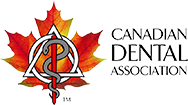

At Grebe Dentistry we believe that every smile has a unique story. Every day in our practice, we meet patients who feel uncomfortable with their smiles. No one needs to go through life being self-conscious about his or her teeth. Together we can create a plan that works for you and enables you to have the smile you’ve always wanted, and tell the story that really describes you.
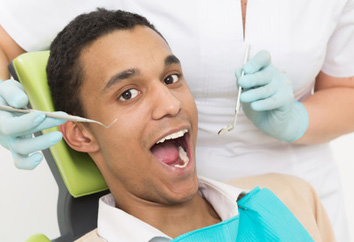



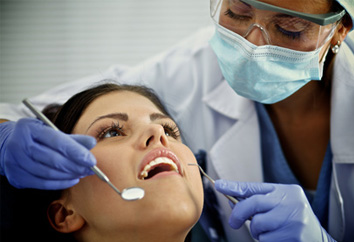



Dental lasers allow us to perform many treatments with exceptional comfort and accuracy. They minimize bleeding, swelling and discomfort.
Laser applications include:
Hanson Dentistry is committed to providing you and your family with safe, gentle, high-quality dental care. We understand that you or your child may feel anxious about visiting the dentist. We are sensitive to your needs, and it is our goal to make you feel comfortable visiting our practice and to provide the best care possible.
Your dental hygienist will remove plaque and tartar deposits that have built up on the teeth over time. Saliva continually bathes your teeth and it contains calcium and other substances to help strengthen and protect them. While this is a good thing, it also means that calcium deposits may build up over time.
Traumatic dental injuries often occur in accidents or sports-related injuries. Chipped teeth account for the majority of all dental injuries. Dislodged or knocked-out teeth are examples of less frequent, but more severe injuries. Treatment depends on the type, location, and severity of each injury. Any dental injury, even if apparently mild, requires examination by one of the dentists at Hanson Dentistry immediately. Sometimes, neighbouring teeth suffer an additional, unnoticed injury that only a thorough dental exam can detect.
People of any age can benefit from orthodontic treatment. Teeth that are crooked, crowded, or that stick out can affect the way your teeth look and function. Orthodontic treatment not only improves the look of your smile but improves your health as well. Straight teeth are easier to clean and less likely to decay or get injured. If you are not happy with the way your teeth look or work, orthodontic treatment may help.
Gum disease or periodontal disease is an infection of the gums surrounding your teeth. It is one of the top reasons for tooth loss in adults, and because can be virtually pain free, many patients do not know they have the disease. During each regular checkup, your dentist will check for signs of periodontal disease by measuring the space between your teeth and gums.
A dentist performs a root canal or endodontic treatment on the inside of a tooth. Root canal treatment is a safe and efficient way to save and restore teeth with extensive damage or disease. The damage might be due to deep decay, repeated dental procedures, faulty crowns, or a crack or chip in the tooth. The procedure involves cleaning the infected debris in the tooth and sealing it with a biologically inert, rubber-like material called gutta-percha. The whole process takes around an hour.
Crowns are a cosmetic restoration used to strengthen a tooth or improve its shape. Dentists use crowns most often for teeth that are broken, worn, or partially destroyed by tooth decay. One of our dentists at Hanson Dentistry will cement your crown onto an existing tooth and fully cover the portion of your tooth above the gum line. In effect, the crown becomes your tooth’s new outer surface. Crowns can be made of porcelain, metal, or both. Porcelain crowns are most often preferred because they mimic the translucency of natural teeth and are very strong.
Fillings
A filling can repair a tooth affected by wear, decay, cracks, or fractures. Fillings are appropriate when the damage to the tooth is minimal – when 1/3rd or less of the tooth needs replacement.
Conscious sedation or nitrous oxide can help patients relax during dental work. Patients are awake but usually are not able to feel or remember their dental visit.
 If one or more of your teeth are missing, there are a number of ways to replace them. Dental implants are an alternative to bridges, partials, or complete dentures. They replace missing roots and support artificial replacement teeth. They are comfortable and look like natural teeth.
If one or more of your teeth are missing, there are a number of ways to replace them. Dental implants are an alternative to bridges, partials, or complete dentures. They replace missing roots and support artificial replacement teeth. They are comfortable and look like natural teeth.
Dental bridges are a simple and effective way to replace one or more missing teeth. A bridge is made up of one or more artificial teeth that are anchored in place by the natural teeth on either side of the gap. This restoration helps restore your smile and makes everyday tasks like eating and speaking easier. It also helps keep your remaining teeth from shifting out of place over time.
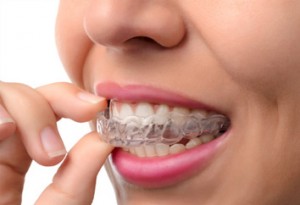 There are more reasons to smile about Invisalign® at our office than you may know. Patients often ask us how Invisalign® treatment compares to braces. Invisalign® is a series of removable aligners that are nearly invisible. The aligner trays are made of smooth, comfortable, and virtually invisible plastic that you wear over your teeth. Besides straightening your teeth, Invisalign® can improve your oral health.
There are more reasons to smile about Invisalign® at our office than you may know. Patients often ask us how Invisalign® treatment compares to braces. Invisalign® is a series of removable aligners that are nearly invisible. The aligner trays are made of smooth, comfortable, and virtually invisible plastic that you wear over your teeth. Besides straightening your teeth, Invisalign® can improve your oral health.
 Cosmetic dental treatments like bonding and veneers can not only fix cavities or broken teeth, but also can improve the look of healthy teeth. Veneers cover the entire front surface of the tooth, whereas bonding covers a smaller portion of the tooth. Bonding and veneers make your teeth look better by changing their colour, shape, angle, or spacing. Dr. Nathan Grebe can fix teeth that are broken, chipped, or cracked, that have spaces between them or discolouration. Bonding and veneers can improve your smile and give you more confidence.
Cosmetic dental treatments like bonding and veneers can not only fix cavities or broken teeth, but also can improve the look of healthy teeth. Veneers cover the entire front surface of the tooth, whereas bonding covers a smaller portion of the tooth. Bonding and veneers make your teeth look better by changing their colour, shape, angle, or spacing. Dr. Nathan Grebe can fix teeth that are broken, chipped, or cracked, that have spaces between them or discolouration. Bonding and veneers can improve your smile and give you more confidence.
 While snoring is a common problem for many people, it can also be a sign of other major health complications. It is estimated that more than 80 million people in North America snore while sleeping, which not only affects the quality of sleep of the person snoring, but also the quality of sleep of their loved ones and other family members. Luckily, there is a way to treat chronic snoring.
While snoring is a common problem for many people, it can also be a sign of other major health complications. It is estimated that more than 80 million people in North America snore while sleeping, which not only affects the quality of sleep of the person snoring, but also the quality of sleep of their loved ones and other family members. Luckily, there is a way to treat chronic snoring.
 TMD or temporomandibular joint disorder is a group of symptoms including headaches, facial pain, jaw pain, sore, chipped, broken, or worn teeth, clicking or popping in the jaw, and limited jaw movement.
TMD or temporomandibular joint disorder is a group of symptoms including headaches, facial pain, jaw pain, sore, chipped, broken, or worn teeth, clicking or popping in the jaw, and limited jaw movement.
TMJ is temporomandibular joint or jaw joint. These small joints in front of each ear attach the lower jaw to the skull, and are the most complex joints in the body. TMJ is located in an intricate network of bones, including the teeth, muscles, and nerves. Due to this, TMJ conditions affect many areas of the body, from the top of the head in migraine-like headaches to numbness or tingling in the arms and pain in the neck or shoulders.
We are excited to share that we can now accommodate more patients because of increased general anesthetic time. We have added another anesthesiologist to our team in order to accommodate your referrals!
We accept referrals for children for general anesthesia and adults for oral moderate sedation and general anesthesia. With shorter wait times due to increased general anesthesia days we are able to accommodate you referrals and patients sooner.
We will provide your office with a report of treatment rendered and we will not accept any requests from patients to become permanent patients at our office, unless they departed from your office for more than 12 months or we have your consent, and only in the case of extremely anxious patients.
We look forward to working with you to provide easy access dental care for all patients. If you have any questions, please contact our office at your convenience.
At Grebe Dentistry, we are a locally, Sudbury owned and run practice, not a big corporation owned entity.
4 out of 10 Canadians experience snoring, often leading to daytime fatigue, irritability, and poor concentration. The QuiteNite™ fractional CO₂ laser therapy offers a quick, five-minute treatment that strengthens soft palate tissue, reduces vibration, and increases airway volume. With no numbing, downtime, or special preparation required, patients see measurable results after just two sessions spaced a few weeks apart—making it a simple and effective solution for snoring relief.
A CBCT scanner, or Cone Beam Computed Tomography scanner, is an advanced imaging system that provides detailed 3D images of your teeth, jaw, and surrounding structures. It uses a focused cone-shaped X-ray beam to capture precise information with minimal radiation exposure. This technology helps your dentist diagnose issues more accurately and plan treatments such as implants, extractions, and orthodontic care with greater precision.








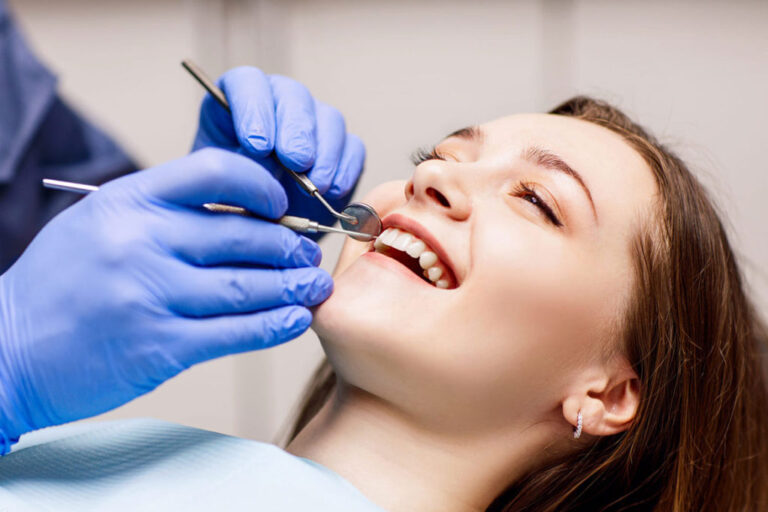


705-897-9777
2945 Highway 69 North, Suite 301
Val Caron, ON P3N 1N3


